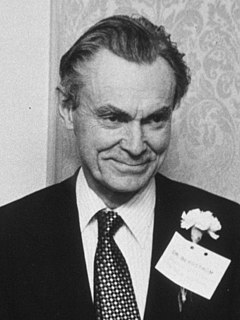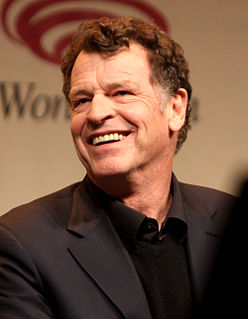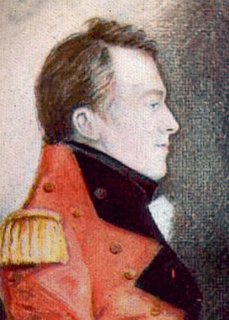Top 1200 Information Science Quotes & Sayings - Page 3
Explore popular Information Science quotes.
Last updated on April 19, 2025.
You have this certain about of responsibility to play a fictitious character and you have a script that's guiding you and the other information of the custom department's choices, and the set department, "Where are you," and all those other pieces of information but you have to cull from your imagination the answer to all the unasked questions. And with a real person, there's someone to get that information from, perhaps.
I am saddened by the release by a national media outlet of my opponent's involvement in pornography. I strongly condemn the release of this information. Our campaign was aware of this information several months ago, and made a very determined decision to not use or disperse this information in any way, shape,or form.
Some of my pictures are poem-like in the sense that they are very condensed, haiku-lik. There are others that, if they were poetry, would be more like Ezra Pound. There is a lot of information in most of my pictures, but not the kind of information you see in documentary photography. There is emotional information in my photographs.
The body itself is an information processor. Memory resides not just in brains but in every cell. No wonder genetics bloomed along with information theory. DNA is the quintessential information molecule, the most advanced message processor at the cellular level - an alphabet and a code, 6 billion bits to form a human being.
It is science alone that can solve the problems of hunger and poverty, of insanitation and illiteracy, of superstition and deadening custom and tradition, of vast resources running to waste, or a rich country inhabited by starving people... Who indeed could afford to ignore science today? At every turn we have to seek its aid... The future belongs to science and those who make friends with science.
I would like to see transparency become the default for the American government: Abolish the Freedom of Information Act so we don't have to ask government for information but government must ask to keep information from us. The more transparent government is, the more collaborative it can become. The more our officials learn to trust us - with information and a role in government - the more we can trust them.
One can think of a secretary actively operating a filing system, of a librarian actively cataloguing books, of a computer actively sorting out information. The mind however does not actively sort out information. The information sorts itself out and organises itself into patterns. The mind is passive. The mind only provides an opportunity for the information to behave in this way. The mind provides a special environment in which information can become self-organising. This special environment is a memory surface with special characteristics.
Science and vision are not opposites or even at odds. They need each other. I sometimes hear other startup folks say something along the lines of: 'If entrepreneurship was a science, then anyone could do it.' I'd like to point out that even science is a science, and still very few people can do it, let alone do it well.
I don't know what to say about Asians. I think everyone is "racist," to differing degrees, in that everyone's brain will automatically associate information with other information, based on the information they are looking at (for example skin color, bone structure), but I think focusing on race in any manner that isn't neutral or self-aware probably increases racism.
You know, entropy is associated thermodynamically, in systems involving heat, with disorder. And in an analogous way, information is associated with disorder, which seems paradoxical. But when you think about it, a bit of information is a surprise. If you already knew what the message contained, there would be no new information in it.
Mathematics has two faces: it is the rigorous science of Euclid, but it is also something else. Mathematics presented in the Euclidean way appears as a systematic, deductive science; but mathematics in the making appears as an experimental, inductive science. Both aspects are as old as the science of mathematics itself.
The traditional boundaries between various fields of science are rapidly disappearing and what is more important science does not know any national borders. The scientists of the world are forming an invisible network with a very free flow of scientific information - a freedom accepted by the countries of the world irrespective of political systems or religions. ... Great care must be taken that the scientific network is utilized only for scientific purposes - if it gets involved in political questions it loses its special status and utility as a nonpolitical force for development.
Because a fact seems strange to you, you conclude that it is not one. ... All science, however, commences by being strange. Science is successive. It goes from one wonder to another. It mounts by a ladder. The science of to-day would seem extravagant to the science of a former time. Ptolemy would believe Newton mad.
Only a very small number of the e-mails containing classified information bore markings indicating the presence of classified information. But even if information is not marked 'classified' in an e-mail, participants who know or should know that the subject matter is classified are still obligated to protect it.
Science is the key to our future, and if you don’t believe in science, then you’re holding everybody back. And it’s fine if you as an adult want to run around pretending or claiming that you don’t believe in evolution, but if we educate a generation of people who don’t believe in science, that’s a recipe for disaster. We talk about the Internet. That comes from science. Weather forecasting. That comes from science. The main idea in all of biology is evolution. To not teach it to our young people is wrong.
Washington is a town where there's all kinds of allegations. You've heard much of the allegations. And if people have got solid information, please come forward with it. And that would be people inside the information who are the so-called anonymous sources, or people outside the information - outside the administration.
Groups are only smart when there is a balance between the information that everyone in the group shares and the information that each of the members of the group holds privately. It's the combination of all those pieces of independent information, some of them right, some of the wrong, that keeps the group wise.
The whole point of science is that most of it is uncertain. That's why science is exciting--because we don't know. Science is all about things we don't understand. The public, of course, imagines science is just a set of facts. But it's not. Science is a process of exploring, which is always partial. We explore, and we find out things that we understand. We find out things we thought we understood were wrong. That's how it makes progress.
An acoustic ecologist is a listener who is aware that sound is information. It's information because it's created by events, events produce sound, and that sound has all kinds of data, if you will, that conveys what event occurred, what the materials were, whether it was sudden, slow, loud, in what direction. And because it is information, we can think of it as a message. The acoustic ecologist studies information systems that are both intentional and sometimes wild.
I wanted to be a scientist. My undergraduate degree is in biology, and I really did think I might go off and be some kind of a lady Darwin someplace. It turned out that I'm really awful at science and that I have no gift for actually doing science myself. But I'm very interested in others who practice science and in the stories of science.
Another of the qualities of science is that it teaches the value of rational thought, as well as the importance of freedom of thought; the positive results that come from doubting that all the lessons are true... Learn from science that you must doubt the experts. As a matter of fact, I can also define science another way: Science is the belief in the ignorance of experts.
My parents didn't know much science; in fact, they didn't know science at all. But they could recognize a science book when they saw it, and they spent a lot of time at bookstores, combing the remainder tables for science books to buy for me. I had one of the biggest libraries of any kid in school, built on books that cost 50 cents or a dollar.




















































